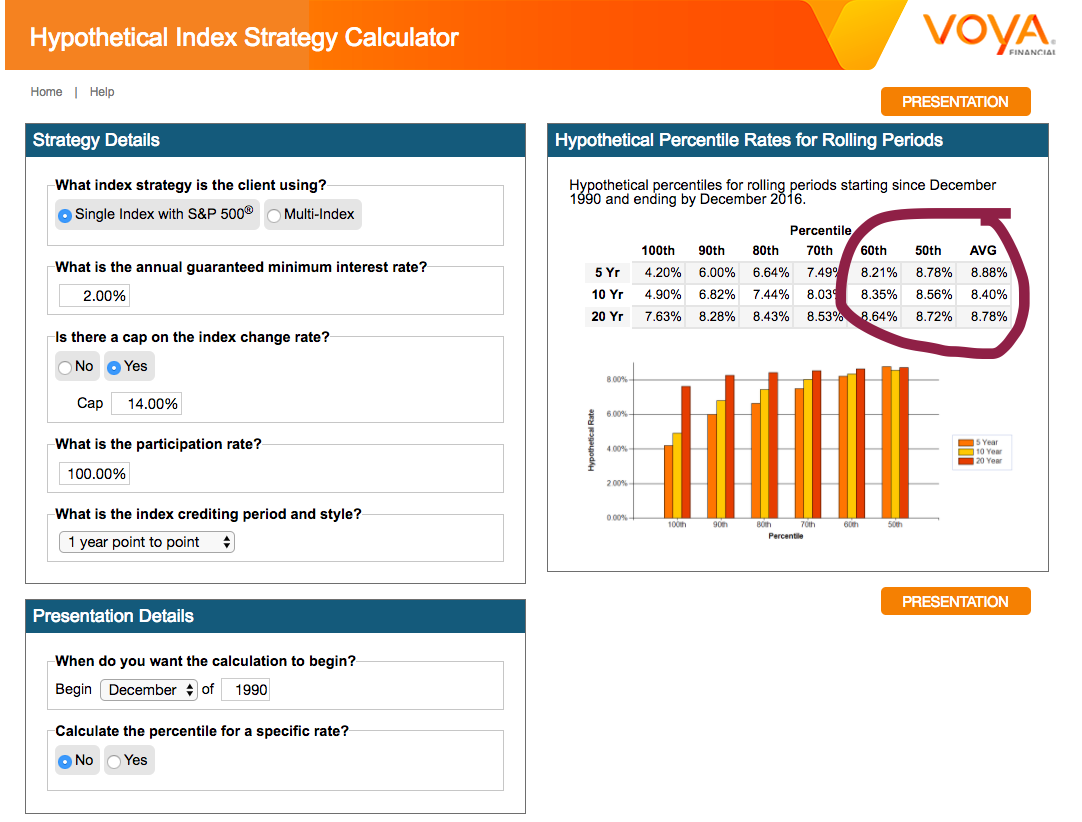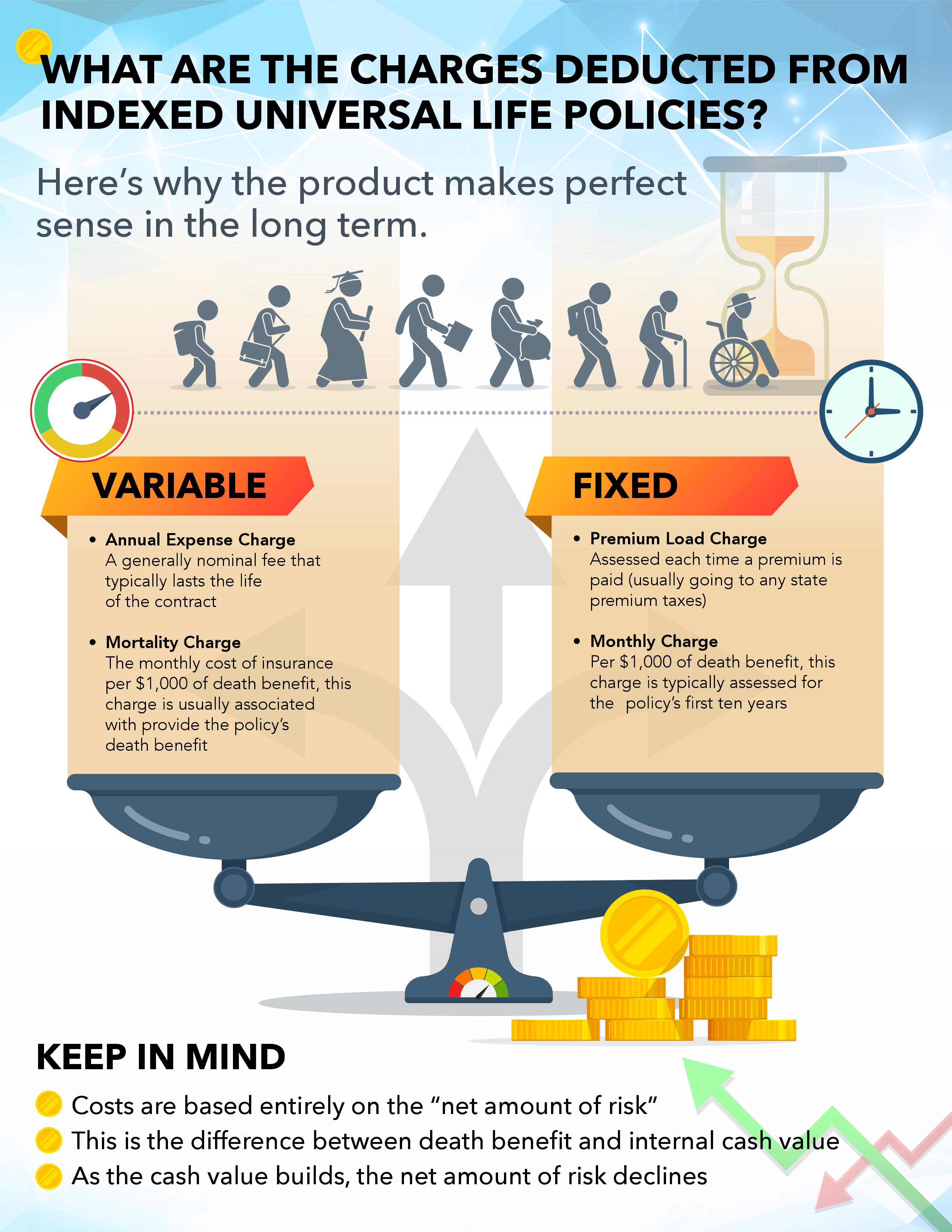All Categories
Featured
Table of Contents
Do they compare the IUL to something like the Vanguard Total Supply Market Fund Admiral Shares with no load, a cost proportion (EMERGENCY ROOM) of 5 basis factors, a turn over proportion of 4.3%, and an extraordinary tax-efficient document of circulations? No, they compare it to some terrible proactively taken care of fund with an 8% lots, a 2% ER, an 80% turn over ratio, and a terrible record of short-term capital gain circulations.
Shared funds typically make yearly taxed distributions to fund proprietors, also when the worth of their fund has actually dropped in worth. Shared funds not just require income coverage (and the resulting annual taxes) when the mutual fund is increasing in value, but can also enforce earnings taxes in a year when the fund has decreased in worth.
You can tax-manage the fund, gathering losses and gains in order to minimize taxable distributions to the capitalists, but that isn't in some way going to alter the reported return of the fund. The possession of mutual funds might need the shared fund owner to pay estimated tax obligations (universal life safety products).

IULs are easy to place to ensure that, at the owner's fatality, the beneficiary is not subject to either revenue or inheritance tax. The exact same tax obligation reduction methods do not work almost also with common funds. There are many, frequently pricey, tax catches related to the timed buying and selling of mutual fund shares, catches that do not relate to indexed life Insurance.
Possibilities aren't very high that you're going to go through the AMT as a result of your common fund circulations if you aren't without them. The remainder of this one is half-truths at finest. While it is true that there is no revenue tax due to your successors when they acquire the earnings of your IUL plan, it is also real that there is no income tax obligation due to your successors when they inherit a mutual fund in a taxed account from you.
Universal Life Insurance Policy Quotes
The government inheritance tax exception limit is over $10 Million for a pair, and growing every year with inflation. It's a non-issue for the huge bulk of medical professionals, a lot less the remainder of America. There are better means to stay clear of estate tax issues than acquiring investments with reduced returns. Shared funds might create revenue taxes of Social Protection benefits.

The growth within the IUL is tax-deferred and may be taken as free of tax income by means of fundings. The plan owner (vs. the shared fund supervisor) is in control of his/her reportable earnings, thus allowing them to lower or even eliminate the taxation of their Social Security advantages. This one is wonderful.
Below's another very little issue. It holds true if you buy a mutual fund for state $10 per share simply prior to the distribution day, and it distributes a $0.50 circulation, you are after that going to owe taxes (possibly 7-10 cents per share) although that you haven't yet had any gains.
In the end, it's actually about the after-tax return, not just how much you pay in taxes. You are mosting likely to pay more in tax obligations by utilizing a taxable account than if you buy life insurance coverage. However you're also most likely going to have more money after paying those tax obligations. The record-keeping requirements for possessing shared funds are substantially a lot more complicated.
With an IUL, one's documents are maintained by the insurance coverage business, copies of yearly declarations are sent by mail to the proprietor, and distributions (if any kind of) are totaled and reported at year end. This is additionally type of silly. Certainly you ought to keep your tax obligation documents in case of an audit.
The Cash Value In An Indexed Life Insurance Policy
Barely a reason to get life insurance coverage. Shared funds are generally component of a decedent's probated estate.
Furthermore, they go through the delays and expenditures of probate. The profits of the IUL policy, on the various other hand, is constantly a non-probate distribution that passes beyond probate straight to one's called recipients, and is consequently not subject to one's posthumous creditors, undesirable public disclosure, or comparable hold-ups and costs.
Medicaid disqualification and lifetime revenue. An IUL can give their owners with a stream of earnings for their entire life time, regardless of just how lengthy they live.

This is helpful when arranging one's events, and transforming possessions to earnings prior to an assisted living home arrest. Common funds can not be transformed in a comparable manner, and are often taken into consideration countable Medicaid properties. This is an additional silly one advocating that inadequate individuals (you know, the ones that need Medicaid, a government program for the bad, to spend for their nursing home) should use IUL rather of mutual funds.
Universal Insurance Logo
And life insurance policy looks horrible when compared rather versus a retirement account. Second, individuals who have cash to acquire IUL above and beyond their retirement accounts are going to need to be horrible at taking care of money in order to ever before receive Medicaid to pay for their nursing home expenses.
Chronic and terminal disease cyclist. All plans will permit an owner's easy access to money from their policy, frequently forgoing any type of abandonment charges when such individuals endure a major ailment, need at-home care, or come to be constrained to an assisted living facility. Mutual funds do not give a similar waiver when contingent deferred sales charges still put on a shared fund account whose owner requires to market some shares to fund the costs of such a remain.
Veterans Universal Life Insurance
You get to pay even more for that benefit (biker) with an insurance policy. Indexed universal life insurance policy offers fatality benefits to the recipients of the IUL proprietors, and neither the proprietor nor the recipient can ever shed money due to a down market.
Currently, ask yourself, do you in fact require or desire a death advantage? I certainly do not require one after I get to financial independence. Do I want one? I expect if it were low-cost sufficient. Certainly, it isn't economical. On average, a buyer of life insurance policy spends for truth cost of the life insurance policy benefit, plus the prices of the policy, plus the profits of the insurance coverage firm.
Index Universal Life Insurance Quotes
I'm not entirely certain why Mr. Morais included the entire "you can not lose cash" once again below as it was covered fairly well in # 1. He just wished to repeat the very best marketing point for these points I expect. Once again, you do not lose small bucks, however you can shed actual bucks, as well as face serious opportunity cost due to reduced returns.

An indexed global life insurance policy policy owner may exchange their plan for a completely different plan without activating revenue tax obligations. A mutual fund proprietor can not move funds from one common fund company to another without marketing his shares at the former (therefore triggering a taxed occasion), and buying new shares at the last, frequently based on sales costs at both.
While it is real that you can exchange one insurance coverage plan for an additional, the factor that people do this is that the first one is such a horrible policy that also after getting a brand-new one and undergoing the early, adverse return years, you'll still appear ahead. If they were marketed the ideal policy the very first time, they shouldn't have any wish to ever before trade it and go through the early, adverse return years once again.
Table of Contents
Latest Posts
Iul Annuity
Whole Life Vs Iul
Universal Insurance Logo
More
Latest Posts
Iul Annuity
Whole Life Vs Iul
Universal Insurance Logo